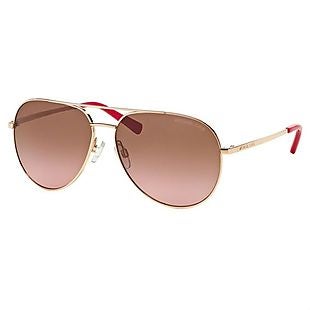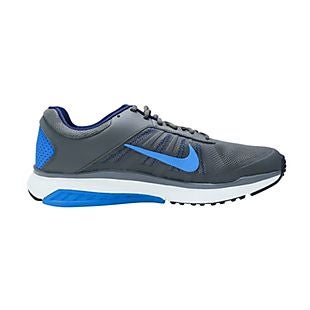50 Cent says he wants to be the Adidas of headphones
The rapper’s company, SMS audio, is betting that more partnerships are the way to success.
How does the rapper 50 Cent describe his headphone company SMS Audio?
“It’s cool, because I’m cool, so that makes the whole thing cool.”
That may not sound like the most refined summation of a business. But the artist, whose legal name is Curtis Jackson, has succeeded in other businesses before, from VitaminWater (he made a reported $100 million when the company sold to Coca-Cola) to his G-Unit record label and clothing line (which also had a Reebok shoe deal). While many have jumped into the headphone space—with its storied low costs and high margins—and failed, SMS Audio (it stands for Studio Master Sound) is still here, after four years. How?
Brian Nohe, president of the company (Jackson is founder and CEO), thinks the key is brand partnerships. He uses Beats By Dre—certainly the better-known rapper-founded headphone brand—as a contrasting example. Beats has mainly used television ads, with artists and athletes, as its marketing vehicle. SMS has avoided that so far and focused on corporate partnerships.
“It is a little saturated when they’ve stuck a headphone on every single person in the world,” Nohe said. “You can only plow that ground so much. We’ve taken a different tack, which is association with brands, and co-branding. We believe those relationships, in a corporate sense, are just as good a strategy.”
SMS has existing partnerships with Walt Disney DIS 0.17% Parks and Resorts (it is the only headphone brand available at Disney World and Disneyland) and with Lucasfilm’s Star Wars. It also has a relationship with Intel, which Nohe says “is spending an enormous amount of money globally on our biotech product.” And now, Fortune has learned exclusively, SMS has cut two more partnerships, with Reebok and Marvel.
While the former makes sense, since headphone marketing is so tied to fitness and sports, the latter may be a surprise. But Nohe and Jackson say it’s about brands that have staying power—whether that’s a tech company, shoe maker, or comics giant. “Those brands don’t go anywhere,” said Jackson. “They’re not going away.”
The Marvel-branded SMS headphones will be at a lower price point, around $99. And SMS says it will keep the Marvel branding subtle. “It won’t look toy-like,” said Nohe. “All that stuff we do, it’s classy. Like on The Avengers headphones, it won’t be a picture of Thor running around. It will be a little symbol, and have the same colorways.” The Reebok-branded headphones, meanwhile, will complement that company’s recent pivot toward a “fit-gen” (fitness generation) image, and be sold at some Reebok store locations and online.
Jackson says he has learned a lot about design. He discovered, from
Apple as well as from the “FunToyzCollector” YouTube videos where a
woman opens up children’s products (to the delight of Jackson’s little
boy), that the act of unboxing is as important as the product within.
This is why a package of the SMS Audio on-ear sport headphones contains a
lot more than just headphones. It also has a zip-up case; two washable
covers for each side; detachable cable with a built-on controller; SMS
Audio stickers; and a small sport towel. He has also made sure the product is durable. (In a demonstration at the Fortune offices,
Nohe grabs a pair and twists it violently, showing that it doesn’t
break. “This is why we say it’s better quality, better sound, better
value,” he said.)
The emphasis on partnerships, rather than paid endorsers, is not to say that SMS doesn’t also have a stable of famous faces. Carmelo Anthony graces the boxes of the sport line, and Timbaland (the DJ, not the boot company) is an investment partner and boardmember—both have equity in the company. Apart from that, the other celebrities are a small group including IndyCar driver Helio Castroneves, pro surfer Alana Blanchard, and New England Patriots tight end Rob Gronkowski.
“We tend to be more narrow in who we work with, but then we focus and work with them a lot more,” said Nohe. “We avoided early-stage investment money and did it our way, which was associate ourselves with brands and use 50’s name to build globally. It was easy to go out into market and use 50 as an ambassador. ‘Here’s 50 at the Wailing Wall in Israel, here’s 50 at the Heineken Music Festival in Amsterdam.’ That was very cost-effective for us.”
For Jackson, it was, at times, strange: “It felt interesting being at CES,” he said, referring to the Consumer Electronics Show in January, where he unveiled the new SMS Star Wars collection. “People were like, ‘What is 50 Cent doing with the geeks?'”
Always, in the background, Beats By Dre looms. Jackson gives them credit. “Beats was the first time you saw a record company realized as a marketing company,” he said. “You saw Gaga Beats, Bieber Beats, Diddy Beats. And when that many people connected to a major record company have product placement, the unestablished artist who purchases a pair of headphones puts that in his clip so that he feels like he’s got that cool too. It worked in a big way. And it’s not necessarily about the product they sell. It doesn’t have a great sound system.”
How can SMS compete? Jackson thinks his advantage is global appeal.
“Beats is Nike, and we’re Adidas,” he says. “It’s more international.”
Even though Beats is a competitor, Jackson has a history with Jimmy Iovine and remains close with Dr. Dre. He has learned from what they’ve done. Now that Beats has sold to Apple, he fondly remembers his own Apple experience. He says he met Steve Jobs just after the turn of the century with Iovine, when the iPod was brand new, and told Jobs confidently, “I can sell the iPod.” He recalls Iovine telling Jobs, “Strange enough, kids will buy it if he tells them to.” And then, he says, Jobs decided on the spot that Apple would pay him $150,000 to put an iPod in his 2003 music video for the song, “P.I.M.P.” Indeed, it was the first music video to plug the iPod, though that same year, the Black Eyed Peas song “Hey Mama” was the first used in an Apple iPod commercial. (That group’s frontman, Will.i.am, was a quiet cofounder of Beats.) “I think Jimmy was bit by the Steve bug, and wanted to be like him,” said Jackson.
Who, then, does Jackson want to be like? He likes Gronkowski, his company’s newest endorser (“You want to party with him, you want to be around him”), but he seems pretty happy just being himself. He says that the athletes he has met end up calling him too much (“it gets a little weird”). And he even brings up, then happily brushes off, some ridicule he’s faced in the press in recent years, like an incident when he appeared to try to kiss Erin Andrews and a very bad first pitch he threw out at a Mets game. “All publicity is good publicity,” he said. “Unless they’re saying you’re finished.”
SMS Audio is private and won’t disclose sales numbers. It also won’t say if it is profitable, but the company says it has grown revenues each year.
In : #GORILLAHITTT 84.8FM LOS ANGELES
Tags: daniel roberts @readdanwrite 50 cent says he wants to be the adidas of headphones
comments powered by Disqus

























































































